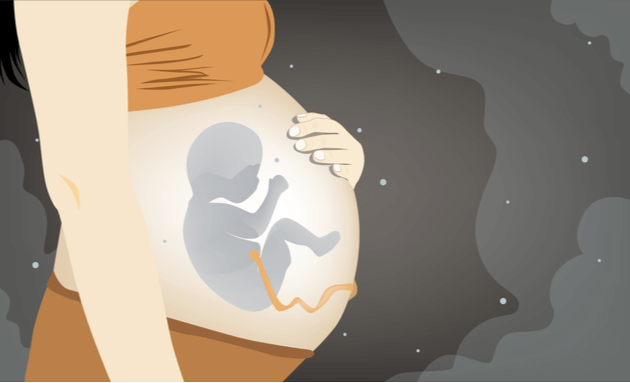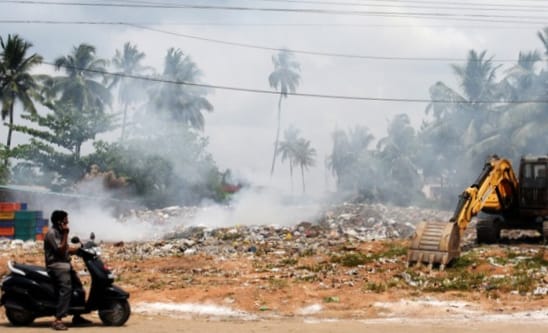How Air Pollution Impacts Pregnant Women And Their Babies

Unborn babies get all their nutrition from their mother. Everything the mother eats and drinks is transferred to the baby. How alarming would it be then if the mother breathes in toxic air, letting her baby breathe in the same kind of air?
Air pollution can adversely affect the health of pregnant women and the development of their baby.
How Can Air Pollution Affect The Foetus?

The foetus receives oxygen from the mother. Breathing polluted air, therefore, affects the foetus. Exposure to outdoor air pollution before conception or during the early months of pregnancy can result in premature birth. Further, it can cause the baby to have a low birth weight and can increase the baby’s risk of contracting illnesses. Babies who are born with a low birth weight tend to be malnourished. They are also likely to develop diabetes, cardiovascular diseases, and hypertension (high blood pressure) in the long term.
Particle Pollution Is Dangerous To The Health Of The Mother And Child
Particle pollution, a combination of toxic particles (solid and liquid) that float around in the air, is the leading cause of many illnesses. Although this can affect any individual, a pregnant lady and her baby can often be hit the hardest.
This toxic particulate matter causes irritation in the lungs, eyes, and throat, making it difficult to breathe. While larger particles can be coughed or sneezed out of the body, smaller particles tend to get trapped in the lungs and enter the bloodstream.
Common Sources Of Air Pollution

Common sources of air pollution include vehicle exhaust, cigarette smoke (second-hand), construction activity, and burning of waste.
The Dangers Of Exposure To Air Pollution During Pregnancy
- Low Birth Weight: Air Pollution can cause babies to have low birth weight. While the exact reason is unknown, this is likely due to a restriction of nutrient delivery through the placenta.
- Preterm Birth: Air pollution can cause premature birth, and can thus lead to neurological disorders and permanent physical disabilities in newborn babies.
- Autism: A Harvard study revealed that a child with autism was twice as likely to be delivered by women who were exposed to high particulate matter pollution during their third trimester.
- Asthma: Asthma during pregnancy can lead to a condition called preeclampsia, causing elevated blood pressure and decreased function of the liver and kidneys. If untreated, asthma can cause your baby to suffer from lack of oxygen. This can result in poor growth, premature birth, and low birth weight.
- Risk of Miscarriage: Studies have found links between prolonged exposure to outdoor air pollution and miscarriages. Outdoor air pollution is also likely to cause lower fertility rates in men and women.
How To Protect Yourself From Air Pollution While Pregnant

You cannot eliminate air pollution completely. That being said, you can certainly protect yourself and your baby during your pregnancy journey.
Getting an air purifier can help remove smoke, allergens, mould, and germs from the air. Keeping plants at home can help with the natural purification of the air. Keep away from chemicals that can be inhaled, such as those in hair sprays and paint.
It is recommended that you check air pollution levels in your neighbourhood before you leave the house. You can do this by checking the air quality index of your area. The air quality index will educate you on particulate pollution levels in your area. If your neighbourhood is more polluted than usual, it is advisable to stay indoors.
You and your baby deserve to live in a healthy environment where you can breathe freely without the threat of air pollution. Using the above-mentioned tips can help create a safe environment for you and your baby.






